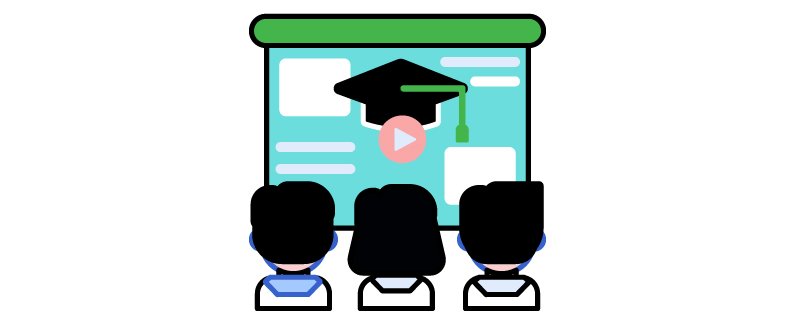Check out our favorite websites to make lesson planning more accessible, keep the classroom operating smoothly, engage kids, and involve families in learning. Please make a note of them and return to them later.
1-Scholastic Teachables are the best teacher resources.
Everything you need to teach every subject is available in Scholastic Teachables’ lesson plans and reproducible, which include mini-books and differentiated collections. It’s a one-stop-shop for all of Scholastic’s classroom resources.
2-NASA STEM Engagement
One of the most comprehensive online collections of high-interest and engaging STEM lesson ideas for teachers and students alike is NASA STEM Engagement. Video and interactive activities abound on the site. Teachers in grades K-12 who are looking for engaging and innovative lesson plans for their classes can find plenty of inspiration at NASA STEM Engagement.
3-Best for Finding and Leveling Books: Book Wizard
Using the Book Wizard is the best way to locate and level up your books.
Use Scholastic’s Book Wizard to level your classroom library, locate resources for the books you teach, and select books at just the appropriate level for students with Guided Reading, Lexile® Measure, and DRA levels for children’s books.
4-Best Source for Books: Scholastic Book Clubs
Scholastic Book Clubs are a great place to find new books.
Scholastic Book Clubs are a great place to get low-cost, high-quality books for students of all ages and backgrounds. Teachers and parents alike have access to the portal. Every time a parent purchases a product, they earn points redeemed for more school supplies!
5-Best for Science: National Science Teachers Association
If you’re a classroom teacher who doesn’t feel at ease teaching geology and astronomy, the National Science Teachers Association website is an excellent resource. Journal articles experiment ideas, and a summary of the most recent science news stories may be found here.
6-Best for Teaching Vocabulary: Flocabulary
Research-based and related to national and state standards, Flocabulary offers a wide range of lesson plans for students in various subject areas. Do you know what makes this place so unique? It’s all about the rap in these classes!
7-Best for Online Classroom Platform: Google Classroom
So many teachers’ classroom management has been revolutionized by Google Classroom’s array of educational tools. It enables teachers to distribute, gather, and organize information more efficiently.
8-The New York Times Learning Network
In addition to the four essential topics, the New York Times Learning Network focuses on English and Social Studies. The New York Times is an excellent source for educators who want to incorporate current events into their lessons. Teachers working with children in grades 8-12 will benefit from using the Times as a resource because of its sophistication.
9-Edpuzzle:
Teachers can upload their own YouTube videos to Edpuzzle, and students can respond to those videos by answering questions. Teachers can create quizzes or tests around the film and get quick results. As a teacher, you can see how many times a student has viewed each segment of the movie, how many times they’ve watched it, and whether or not they grasp the topic. It is suitable for teachers in grades 6-12 who want to incorporate additional visual aids into their lessons and distance learners.
10-Kaizena:
Teachers can use Kaizena to provide students with quick or real-time comments on Google docs, PDFs, or other uploaded work. Teachers can even contribute their rubrics or other materials to make it even more engaging. They are designed for teachers in grades 6-12 who want to build stronger relationships with their students by providing valuable feedback.
11-ClassDojo:
One of the best free tools for documenting, managing, and enhancing student behavior and learning is ClassDojo. It contains messaging apps linked to kids and families alike, incentivizes learning possibilities, etc. Perfect for teachers of grades 6-12 who are looking to improve classroom management and student participation.
12-Quizlet:
If you’re in the market for a quick test review, informal evaluation, or quick check of your understanding, Quizlet is a great option. You can either make your Quizlet or select one from the vast collection of existing reviews. For instructors working with kids in grades 6-12, Quizlet is an excellent addition to their arsenal of online tools for helping their students better understand challenging subjects and build their academic vocabulary.
13-TedEd
There are hundreds of TedEd animations and TED Talks on this website, known as TedEd. These movies and animations are designed to pique pupils’ interest while also being instructional and informative. TedEd also gives you the ability to construct lessons that are unique to your pupils and include interactive elements, such as questions and themes for discussion. Teachers can track and share the results of their studies with their students online. They are designed for grades 6-12 who want to incorporate more visual media into their lessons.
14- Youcubed
math myth-busting resources that are based on solid research
Overall, this is a terrific resource for teachers who want to change students’ perceptions of arithmetic and teach it in a novel and entertaining manner.
15- BioInteractive
Biomedical research is brought to life by high-quality multimedia.
Students benefit from excellent multimedia tools and lesson plans that use real-world situations to help them learn about biology.
There are so many online teaching tools to choose from that it might be challenging to choose which ones to use in your classrooms!!
Conclusion:
It’s time to take your teaching to new heights with this comprehensive list of the top educational websites for teachers on the internet.
Frequently Asked Questions
What is the purpose of teaching websites?
The purpose and importance of teaching and learning materials are to make lessons enjoyable, learning easy, and enable teachers to express concepts easily. Learning materials can significantly increase learners’ achievement by supporting learning.
Why are resources necessary in education?
Education resources are no doubt necessary to develop a conducive teaching-learning environment. Using these resources could give the teacher more helpful and decisive direction than any personal efforts without the materials.

